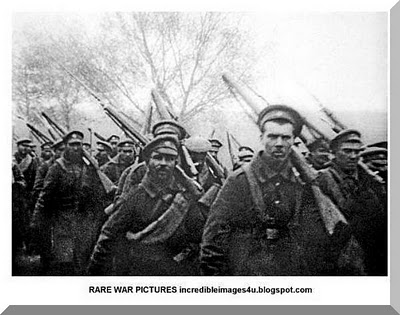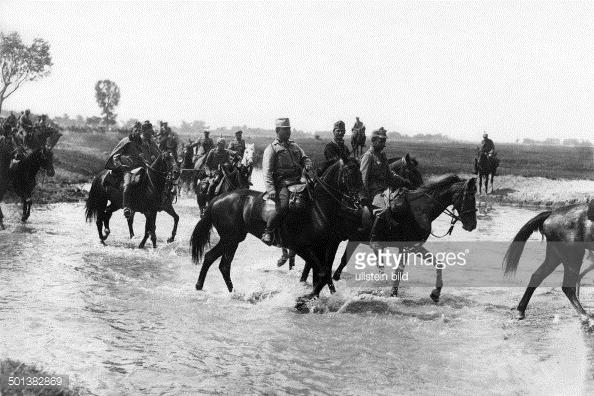Countryside and Cities Plundered; Rape and Murder Widespread
Bolshevik Propaganda Reaches Front
Special to The Great War Project
(21-25 June) The Russian Army in Poland continues to fall back, suffering heavy losses in the process.
Disillusionment with the war begins to spread in Russia, on the battlefield, and on the home front.
The Germans retain only defensive positions on the Western Front and divert all the forces they can to the east. There, the German offensive is unstoppable. “During the six months of the relentless offensive,” writes historian Adam Hochschild, “the Russian army lost an estimated 1.4 million men, or more than 7,500 a day.”
Propaganda leaflets from the Russian anti-war Bolsheviks begin to appear “in packages sent to the troops from home,” reports Hochschild. “The army was hit by its first large wave of deserters.”
Despite the retreat though, the Russians manage to regroup, observes historian Michael Neiberg, and they stay in the war.
At the same time, in the Austro-Hungarian army, “draft dodging and desertion were mounting already from the beginning of 1915,” according to historian Alexander Watson.
The Russian army retreats on a front more than 600 miles long. Russian soldiers scorch the earth as they withdraw. The scale of destruction is staggering.
Russia’s troops, Hochschild reports “destroyed crops, houses, railways, entire cities, anything that might be of use to the enemy. In western Russia….
a zone of destruction gradually spread for hundreds of miles, where no food grew and few buildings stood.”
“From this wasteland the retreating Russians also forcibly removed huge numbers of people. Targeted above all were non-Russian minorities, who the Tsarist government feared would cooperate with the German occupiers.”
According to Hochschild, the Russians employ fierce Cossack cavalry wielding whips “to drive at least half a million Jews from their homes.”
“Jewish quarters were plundered and people beaten, murdered and executed,” writes historian Alexander Watson. “Jews were the principal victims. There were many rapes. Community leaders were taken as hostages to Russia.”
Even more Poles as well as Lithuanians, Latvians, and ethnic Germans suffered the same fate. “As these terrified refugees began their flight,” writes historian Hochschild,
“they could often look back and see Russian soldiers setting fire to their homes or farms.”
A British military attache with the Russian army describes the agonizing scene this way. “Whole families with all their little worldly belongings piled on carts; two carts tied together and drawn by a single miserable horse; one family driving a cow; a poor old man and his wife each with a huge bundle of rubbish tied up in a sheet, and slung on the back.”
This scorched earth policy holds terrible consequences. It soon becomes apparent that the Russian destruction in retreat results in the loss of much valuable agricultural land.
It is a catastrophe for many reasons, not least of which is the threat of terrible hunger in Austria-Hungary itself.
Still the outcome of the war on the Eastern Front remains in doubt. It becomes, according to historian Watson, “a struggle of endurance that [the Germans and Austrians] were ill-equipped to win.”


